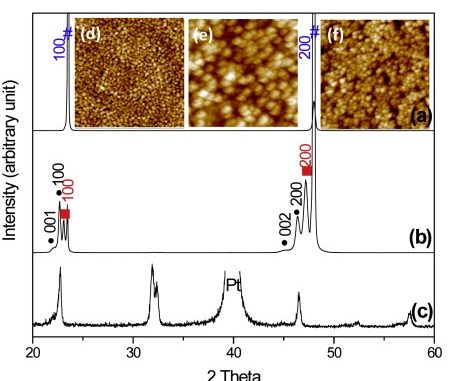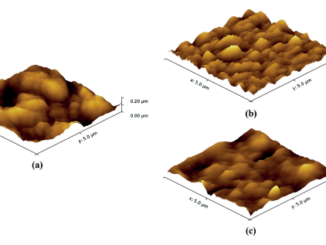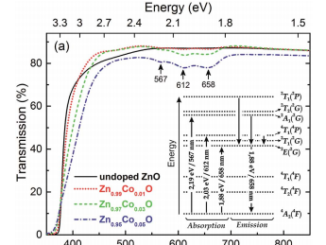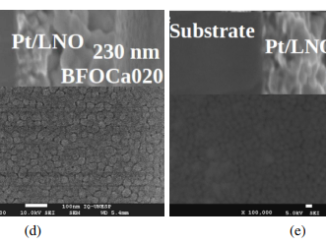
Nanoscale investigation of ferroelectric and piezoelectric properties in (Pb,Ca)TiO3 thin films grown on LaNiO3/LaAlO3(100) and Pt/Si(111) using piezoresponse force microscopy
Abstract: Single phase polycrystalline and strong textured Pb0.76Ca0.24TiO3 (PCT24) thin films have been grown on platinum coated silicon and LaAlO3(1 0 0) (LAO) substrates using LaNiO3 (LNO) as a buffer layer by chemical solution deposition. X-ray diffraction measurements showed that the PCT24 thin films crystallize in a highly a-oriented single phase on LNO/LAO(1 0 0). The effects of the LNO buffer layer, nature of the substrate, and film orientation on the ferroelectric and piezoelectric properties were investigated in the nanoscale range using piezoresponse force microscopy (PFM). Local piezoelectric hysteresis loops for PCT24/LNO/LAO(1 0 0) oriented films and PCT24/Pt/Si polycrystalline films were measured on selected grains. From these piezoloops, PCT24/LNO/LAO(1 0 0) oriented films show a higher response (maximum relative d33 value) than PCT24/Pt/Si polycrystalline films. Furthermore, the comparison of simultaneously acquired surface morphology and piezoresponse images of the PCT24/Pt/Si films revealed the presence of inactive grain regions. In contrast, highly a-oriented films showed a higher presence of active grains. Our observations suggest that the improvement of ferro/piezoelectric properties is greatly associated with the use of LNO buffer layers and the growth of highly a-oriented films.
Author(s): Capeli, R. A.; Pontes, F. M.; Pontes, D. S. L.; et al.
Materials Letters
Volume: 196 Pages: 64-68 Published: 2017
DOI: https://doi.org/10.1016/j.matlet.2017.03.029




